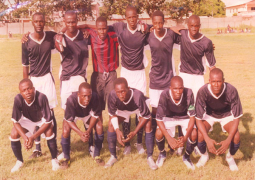The consequences of malnutrition are serious and life-long, falling hardest on the very poor and on women and children.
In developing countries, nearly one-thirds of children are underweight or stunted and a low height for their age.
Acute malnutrition or wasting and or edema occurs when an individual suffers from severe nutrition restrictions, a recent bout of illness, inappropriate childcare practices or a combination of these factors.
The result is sudden weight loss or the development of bilateral pitting edema, which can be reversed with appropriate treatment.
Acute malnutrition is diagnosed if child has inadequate weight relative to height compared to the WHO reference population, and or if muscle wasting is present using Mid Upper Arm Circumference (MUAC) and or bilateral pitting edema.
Acute malnutrition may be classified as moderate or severe according to the degree of wasting in comparison to specific cut off points or reference standards; bilateral pitting is always classified as severe.
Speaking at the opening ceremony held at the Supreme Islamic Council premises in Kanifing, Sanjally Trawally, deputy director health promotion and education, informed the gathering that his directorate established a nutrition unit with NaNa.
He said NaNa would continue to coordinate all nutrition and his unit would support it.
Traditional communicators are very important, because they live with the community and working with somebody you know would be useful to people, he said, adding that they would continue to engage them.
He explained that they started in the KMC and plan to scale up to other regions next year, adding that the health promotion and education unit had done a lot in terms of education, among others.
“Having these diverse products will also help us as hygiene is so important in food. Lack of micronutrients can also cause problems like lack of minerals and vitamins which are very key.”
He commended the trainees and expected them to practise the knowledge gained from the training session to the community.
Stanley Mwase, nutrition specialist at UNICEF, said this called for immediate action for all, noting that malnutrition has an effect on the growth of the child and the performance of the child in school.




